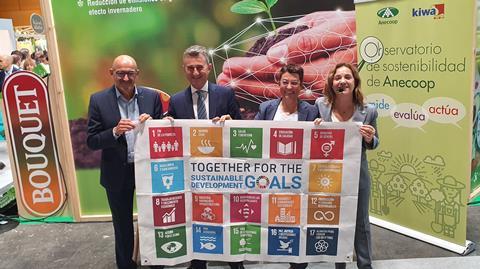Initiative will promote environmental, social and corporate governance criteria among its partners and workers
Anecoop has launched a new initiative to promote environmental, social and corporate governance criteria among its cooperative members and workforce.

Campus Anecoop will provide specialised training sessions for its cooperatives partners and employees on how to integrate sustainability in their organisations under the framework of the Sustainable Development Goals (SDG) and the European Green Deal.
President Alejandro Monzón said the move aims to promote “business practices aligned with international sustainability standards”.
The training programme will cover key points to promote sustainable development in the agri-food sector, such as decarbonisation strategies, circular economy, life cycle and food waste and environmental footprint.
The formation of Campus Anecoop also leaves room for the management and governance of the sustainable cooperative. Thus, participants will be provided with practical tools and specialised knowledge to face current and future challenges in terms of environmental and social responsibility.
Measuring tools
The perceive value of ESG criteria sometimes leads to greenwashing – companies trying to achieve recognition without this being supported by real actions.
Aware of this reality, Campus Anecoop will make sustainability verification processes available to students, as well as key performance indicators and evaluation systems that allow them to accurately measure the social, economic and environmental impact of their cooperatives.
“The measurement of actions and projects linked to sustainability is the best guarantee that any organisation has to put on the table its real commitment to the community and dispel the suspicion of greenwashing,” said Mari Carmen Morales, director of quality and sustainability at Anecoop.
The move forms part of Anecoop’s Sustainability Observatory. Launched last October from the alliance between Anecoop and Kiwa R + D, it aims to generate the necessary knowledge and innovations that drive the agri-food sector towards greater efficiency, competitiveness and resilience in the face of climate change in Spain.
To do this, it works with social and economic indicators to investigate how to promote the sustainable development of agricultural cooperatives, improve their competitiveness and increase their economic growth, while acting positively on the environment.



